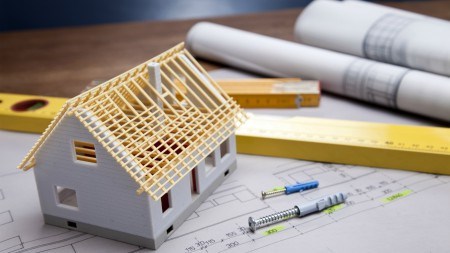Building from scratch or adding on to a property can give homeowners the opportunity to personalise their home, but they need to ensure that the correct procedures are followed before breaking ground.
According to Adrian Goslett, Regional Director and CEO of RE/MAX of Southern Africa, moving ahead with a building project without adhering to the necessary protocols will only make the process far more complicated and costly.
“Anyone who wants to undertake a construction project that does not fall under the category of minor work will need to follow procedures and submit building plans for approval before construction starts,” says Goslett.
So what exactly is defined as minor work? According to the Section 13 of the National Building Regulations and Building Standards Act 103 of 1977, the following projects will be considered to be minor work:
Any tool shed, poultry house, private swimming pool change room or fuel store no bigger than 10m2
A private swimming pool
Children’s playhouse or cycle shed no bigger than 5m2
An aviary no bigger than 20m2
A greenhouse smaller than 15m2
Open-sided car-port, caravan or boat shelter a maximum of 40m2
A pergola of any sort
The replacement of a roof or part thereof
Any free-standing wall not exceeding 1.8m in height
A removing a wall or creating a wall opening that does not affect the structure’s integrity
Converting a door to a window or vice versa, as long as the width of the opening is not increased
Installing a solar water heater which doesn’t exceed 6m2 Goslett says that for all other building projects, homeowners will be required to obtain approval. He notes that a certified copy of the approved plans will need to be available at the site until construction is complete and the homeowner receives a certificate of occupancy from their local authority.
According to Goslett, there are several elements that homeowners will require before they apply for approval, such as layout drawings, a site plan, a fire installation drawing, a drainage installation drawing and any other applicable certificates that may be stipulated in the Regulations for the particular project. If there are existing buildings on the property that will need to be demolished before the project starts, the particulars of the buildings and method of demolition will also be required.
“While following the correct channels could prove to be cumbersome and will take a little extra time, it will benefit homeowners in the long run. If a homeowner decides to go ahead with a building project without approval, it could affect the resale value of the property when a potential buyer asks to see the approved plans,” says Goslett. “A worse scenario is if a building inspector orders construction of an unapproved project to be stopped and obtains a court order to have the project demolished at the homeowner’s expense. The homeowner will also be liable for any legal costs incurred during the process.”
Goslett adds that aside from possibly having to pay for demolition and legal fees, the homeowner will also be out of pocket for all the money they spent on building materials and labour. In extreme situations, homeowners could also face a fine or potentially jail time. “At the end of the day, it is in homeowners’ best interest to following the right procedure and only start a construction project once they have obtained approval to do so,” he concludes.




